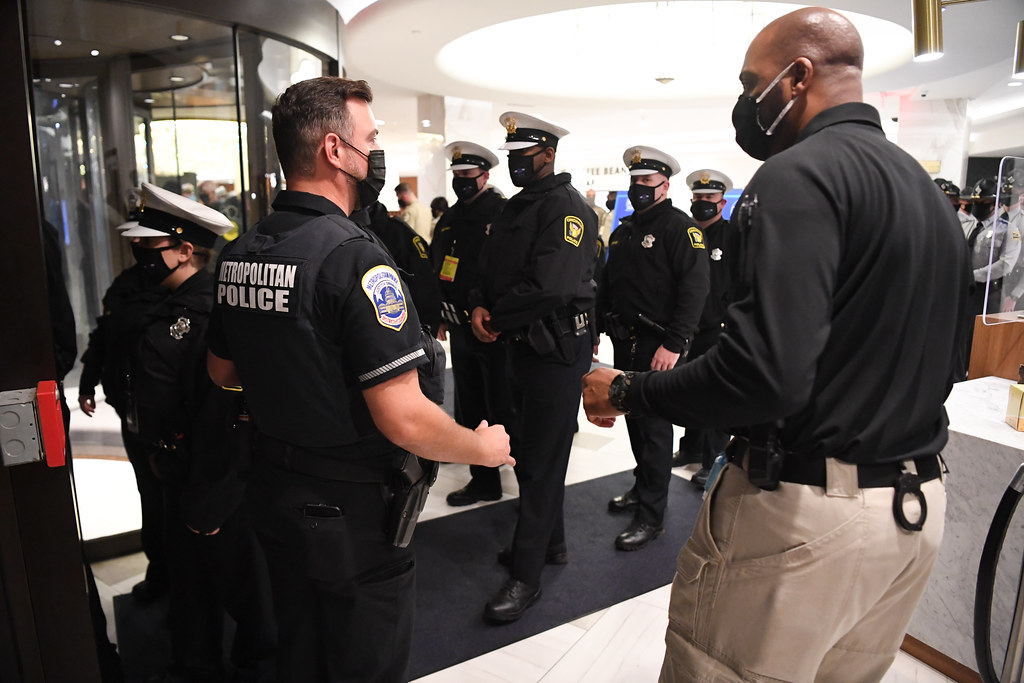
As hundreds of federal law enforcement officers and National Guard troops deploy across Washington, President Donald Trump has turned his attention to the city’s juvenile crime laws. His criticism, echoed by allies, comes after a former federal staffer was assaulted by a group of teenagers earlier this summer.
The president blamed decades of Democratic leadership for creating a system that, in his view, allows violent offenders to avoid accountability. “Local ‘youths’ and gang members, some only 14, 15, and 16-years-old, are randomly attacking, mugging, maiming, and shooting innocent Citizens,” Trump posted on Truth Social. He argued that minors who commit violent crimes should be prosecuted as adults starting at age 14.
Youth Arrests and the Legal Framework
According to government data, youth arrests in DC peaked in 2023 before falling the following year. But arrests from January through June 2025 reached their highest rate for that period since 2019.
Under current district laws, offenders younger than 15 cannot be prosecuted as adults in most cases. Juveniles aged 16 and 17 may be directly charged as adults by the U.S. attorney’s office when facing charges such as murder, sexual assault, or armed robbery. The DC attorney general can also petition a judge to transfer cases involving 15 to 17-year-olds to adult court if prosecutors prove the defendant has limited chances for rehabilitation.
The DC attorney general’s office defended its record in a statement, saying it “prosecutes all serious and violent crimes committed by juveniles where we have the evidence required to do so.”
Pirro Targets District Laws
Jeanine Pirro, newly confirmed as U.S. Attorney for the District of Columbia, has joined Trump in pressing for changes. She singled out three laws in particular.
First, she criticized the Youth Rehabilitation Act of 2018, which raised the age for certain youth sentencing considerations from 22 to 24 and allows some convictions to be sealed once sentences are served. Pirro pointed to a case where a 19-year-old convicted of a shooting received probation under the act.
Second, she attacked the Incarceration Reduction Amendment Act of 2021, which permits offenders convicted before age 25 to request sentence reductions after serving 15 years. Judges must weigh multiple factors, including victim impact and rehabilitation potential.
Finally, she challenged the Second Chance Amendment Act of 2022, which expanded opportunities for sealing or expunging criminal records.
“I know evil when I see it, no matter the age,” Pirro said. “The violence in DC committed by young people belongs in criminal court, not family court.”
Local officials and experts argued that the administration’s approach reflects outdated thinking from the 1990s crime wave era. They said current policies are better aligned with research on youth development and rehabilitation.
Eduardo Ferrer of Georgetown University’s Juvenile Justice Initiative said the district’s approach is “much more grounded in research about what works and what doesn’t work.”
DC Councilmember Christina Henderson added that she is not prepared to abandon rehabilitation efforts: “I feel strongly that the district should be able to make that decision for themselves, because these are our kids.”
What The Author Thinks
Every time crime rises, leaders call for harsher laws, and every time it falls, the focus on rehabilitation returns. Trump and Pirro’s tough-on-crime stance may resonate with some, but history shows that throwing kids into the adult system often creates more hardened criminals rather than fewer. DC’s challenge is finding a balance between safety and second chances, and swinging too far in either direction risks repeating old mistakes.
Featured image credit: Office of Public Affairs via Flickr
For more stories like it, click the +Follow button at the top of this page to follow us.
